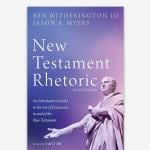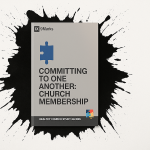 Dishwasher wisdom, by Jura Konklus:
Dishwasher wisdom, by Jura Konklus:
Carolyn Forte, director of home appliances for the Good Housekeeping Institute, is paid to know the best way to get your dishes sparkling clean.
She is still amazed at all the differences of opinion about dishwashers and how to run them for maximum performance. “Loading the dishwasher causes a lot of angst. This is still a battle ground, and people have such strong feelings about things like pre-rinsing,” she says. “It’s a little bit of a control issue.”
Forte and her staff analyze new dishwasher models and how to get the cleanest result. Manufacturers continually update features to balance energy efficiency and performance while reducing water usage, she says.
She’s constantly being asked for advice. One of her favorite tips: before you start your dishwasher, run the hot water in the sink next to it until the water gets hot, usually about 15 seconds. The cold water sitting in your pipes will go down the drain and not into your dishwasher. And of course, don’t forget to read your manual.
We asked her to address six common mistakes consumers make when operating dishwashers.
Lee Camp’s moving reflection on Easter politics:
Christianity is often misunderstood, and often misunderstood by the “believers.”
Easter is a political fact: that the merciful governance of a power beyond our understanding has been inaugurated in human history. Easter is not a mere “religious doctrine” to which Christianity calls potential adherents to give their intellectual assent, so that they might receive some reward in the after-life.
But if Easter is to be rightly recognized as a political fact, it must always be kept in tandem with Good Friday: what Easter vindicates is not the self-righteous claims of any particular group of people who see themselves as the good guys. Instead, Easter vindicates suffering love.
Note that Easter is not the triumph of suffering love. The triumph of suffering love is demonstrated on Good Friday.
When the powers-that-be would trump the truth with their big sticks and walls and torture, and yet the threatened one chooses, still, to bear witness to the truth: this itself is a victory. When the powers-that-be mock the one who protests the conceit of the powers, or when the powers-that-be spur the crowds to violence: in the midst of such fear-mongering, where is one who will stand undeterred, who will exhibit courage, who will not return hatred for hatred? Where is the one who will embody the meaning of being a true human?…
But if it is true — that the way of suffering love has been vindicated, has been shown to be the way in which the universe ultimately works — then it is a question with which we must all deal, religious or not. To argue with Easter is like arguing with gravity: it does not matter whether one “believes” it or not; it is simply a matter of whether we will continue to wound and harm and destroy ourselves by refusing to respect its reality.
That the way of love, even when tortured and killed, shall not be kept dead: if this be true, then such a claim would re-order not merely one’s private life, but the whole of life, and the whole of history, and the whole of politics.
Easter vindicates a new kind of politics: “whoever would be great among you must be your servant.” “Let your yes be yes, your no be no.” “Do good to those who do evil to you.” “Welcome the little children.” “Pray for those who spitefully use you.”
So, after Easter, if we would speak of making our community “great again,” we must come to terms with the politics of Easter: to be great requires a deep and liberating humility, a mercy and quiet persistence in meeting others in their distress, an allowance for others to speak and to be heard, a universal proclamation of the goodness of all human beings.
The privilege of de-cluttering, by Arielle Bernstein:
Today, of course, my mother has plenty of choices, but throwing things away still makes her anxious. Now that my grandparents have both passed away, my mother still struggles to decide what to do with all that stuff. It’s very painful for her, and my father’s encouragement that she sift through everything, organize it in some kind of clearly delineated way, often falls on deaf ears. A few months ago, when I was visiting home, my father asked if I would help go through some of the items. Now that he and my mom are older and my brother and I are grown, they’ve both expressed a desire to downsize. In the car, my dad recommended starting with my childhood bedroom, which looks exactly as it did when I was 14 years old, pink and purple, filled with childhood books and stuffed animals, half-filled journals, and never worn shoes. At first I was enthusiastic about the project. “We can give a lot of those things to charity,” I said.But at home, I sat in front of my bookshelf and did exactly what Kondo cautions most against: I started my project of decluttering by going through the things that mattered most to me: the books I loved when I was a child; the CDs made by dear friends and stacked high in no particular order; the college textbooks I never remembered to return. Objects imbued with memories of a person I once was, and a person that part of me always will be.I didn’t want to give any of it up.Kondo says that we can appreciate the objects we used to love deeply just by saying goodbye to them. But for families that have experienced giving their dearest possessions up unwillingly, “putting things in order” is never going to be as simple as throwing things away. Everything they manage to hold onto matters deeply. Everything is confirmation they survived.
RICHMOND, Calif. — The odds were good that Lonnie Holmes, 21, would be the next person to kill or be killed in this working-class suburb north of San Francisco.
Four of his cousins had died in shootings. He was a passenger in a car involved in a drive-by shooting, police said. And he was arrested for carrying a loaded gun.
But when Holmes was released from prison last year, officials in this city offered something unusual to try to keep him alive: money. They began paying Holmes as much as $1,000 a month not to commit another gun crime.
Cities across the country, beginning with the District of Columbia, are moving to copy Richmond’s controversial approach because early indications show it has helped reduce homicide rates.
But the program requires governments to reject some basic tenets of law enforcement even as it challenges notions of appropriate ways to spend tax dollars.
In Richmond, the city has hired ex-convicts to mentor dozens of its most violent offenders and allows them to take unconventional steps if it means preventing the next homicide.
Not in our house, by Sarah Halzack as Kris shops for neither:
It’s been a bleak time in many corners of the American mall: Apparel executives have lamented that women are bored of skinny jeans. Gadget retailers are feeling the sting of the lack of a new, must-have smartphone. And even at the food court, some mainstays are struggling to stay relevant as we opt for healthier diets.
But there’s at least one shopping category that’s sitting pretty: The upscale beauty business.
Sephora and Ulta have each posted a string of blockbuster sales results. Estee Lauder, the company that owns its eponymous cosmetics line as well as brands such as Clinique and MAC, recently raised its sales forecast as it says it is sees greater demand for its products. And non-traditional beauty players such as Anthropologie and H&M have announced plans to devote more store space to these items.
The popularity of luxe cosmetics appears to be fueled by several factors, including a steady stream of new makeup trends and the growing purchasing power of a millennial shopper who thinks differently about her beauty regimen.
The prestige beauty category — which includes makeup, fragrances and skincare products that tend to be fancier than what you find at the drugstore— saw a 7 percent increase in sales last year, according to market research firm NPD Group. The makeup subcategory was particularly strong, with sales of those products surging a robust 13 percent.
Vicky Hallett and toy libraries:
The other morning, my baby announced that she was awake by clapping her hands. As I picked her up out of her crib, I drowsily joined her in a round of applause. When I peeked out the window, I realized we indeed had an excellent reason to cheer. It was a gloomy scene, dominated by gray clouds and a constant drizzle. A quick check of my phone confirmed that yep, the rain would be sticking around all day long.
In other words, it was absolutely perfect weather for our scheduled playground play date.
That’s because here in Florence — like all over Italy — you’re never far from an indoor playground. The concept is called a “ludoteca,” which translates into English as “toy library.” Like outdoor playgrounds, the city operates these free for families. Florence has 10 scattered in various neighborhoods. Each one offers slightly different amenities and activities, but basically they’re places for kids under the age of 11 or so to scamper around.
LAS VEGAS — Jamie Tyler was stressed. He had just endured a half-hour slog through airport security and needed some relief. Many travelers in this situation might have headed for the nearest bar or popped an aspirin. But Tyler grabbed a triangular piece of gadgetry from his bag and held it to his forehead.
As he closed his eyes, the device zapped him with low-voltage electrical currents. Within minutes, Tyler said, he was feeling serene enough to face the crowds once again.
This is no science fiction. The Harvard-trained neurobiologist was taking advantage of one of his own inventions, a device called Thync, which promises to help users activate their body’s “natural state of energy or calm” — for a retail price of a mere $199.
Napster of academic articles, Michael S. Rosenwald:
Alexandra Elbakyan is a highbrow pirate in hiding.
The 27-year-old graduate student from Kazakhstan is operating a searchable online database of nearly 50 million stolen scholarly journal articles, shattering the $10 billion-per-year paywall of academic publishers.
Elbakyan has kept herself beyond the reach of a federal judge who late last year issued an injunction against her site, noting that damages could total $150,000 per article — a sum that Applied and Computational Harmonic Analysis, a journal in her database, could help calculate. But she is not hiding from responsibility.
“There are many ways to argue that copyright infringement is not theft, but even if it is, it is justified in this case,” she said in an instant-message interview via Google. “All content should be copied without restriction. But for education and research, copyright laws are especially damaging.”
Elbakyan is pursuing a master’s degree in the history of science while pursuing the worldwide liberation of knowledge from, as she sees it, the tyranny of for-profit publishers. Her ideology was shaped growing up in a former Soviet republic where access to information and the Internet was difficult.















